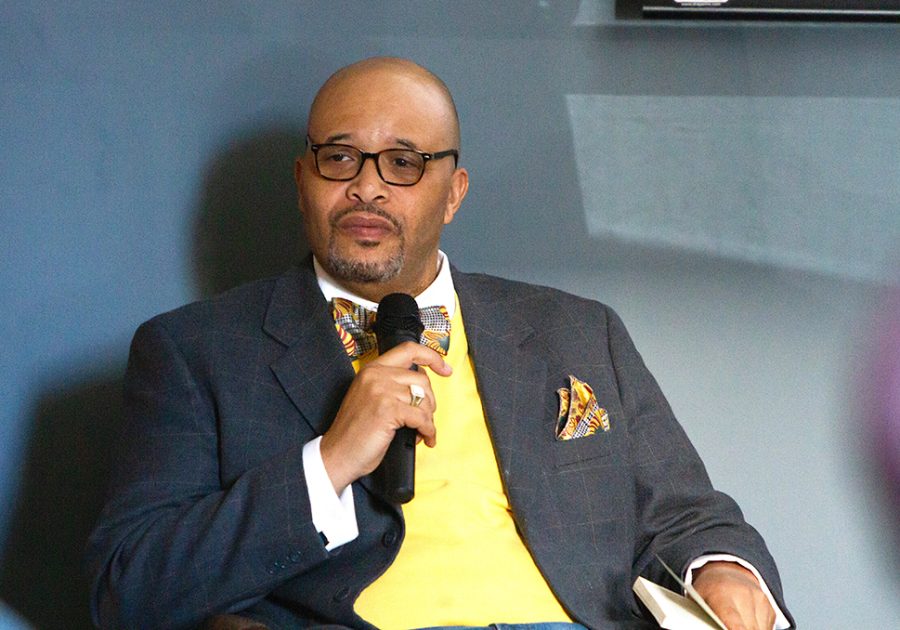White discusses ‘Slave Narratives’ on Douglass’ birthday
Photo by KYRA ROGERS/Staff Photographer
Instructor of Humanities Robert White, J.D. assisted students in understanding the Slave Narratives of Fredrick Douglass.
February 18, 2023
The book “Slave Narratives of Frederick Douglass” became the topic of the hour in the Levi Watkins Learning Center Lecture Hall, as Alabama State University’s instructor of humanities Robert White, J.D., led a discussion surrounding “Black Resistance,” – an African Americans’ refusal to accept racial oppression and racial injustice.
The resistance that he discussed is about colonialism and everything that it stood for.
“You can get more from a literary story than you can from a picture,” White said as he dissected the first chapter of the book. The book’s theme was to focus on
classic slave literature of enslaved or formerly enslaved people during the most desperate and hopeless period of Black existence in our society.
The Slave Narratives are the first sign of intellectualism of people who were colonized. The knowledge of Fredrick Douglass being a mulatto was also shared, as his mother was an enslaved woman and his father was his master.
“Enslavement was not only physical; it created a far more lasting impact mentally,” White said while reading through the horrors that Douglass endured.
He continued.
“They were stuck in a perpetual state of adolescence due to not knowing their age,” referring to Douglass not having the privilege of knowing how old he was.
“I can not tell why I ought to not have the same privilege,” Douglass wonders. “I was not allowed to make any inquiries.”
Corie Muhammad, instructor of reading at the university, shifted the discussion to students who live in the “DMV” area.
“I often think about how students who are from the DMV area (The National Capital Region portion of the Washington metropolitan area is also colloquially known by the abbreviation “DMV,” which stands for the “District of Columbia, Maryland, Virginia), don’t believe they are from the South,” Muhammad said. “Frederick Douglass was enslaved in Maryland. If you have ever been to Mayland, Black people don’t just live in Baltimore. They live throughout the state. That is where the system was expanded from. Harriet Tubman was escaping from Maryland. I was also thinking about how, with resistance, you see morality. Certain aspects of Black people’s moral tradition are being resisted from being talked about in today’s time.”
The mistress of ceremonies was the archivist for the university, Kashona
Murphy. Greetings were given by a retired professor of history, Dorothy Autrey, Ph.D. The program was a collaboration between the Levi Watkins Learning Center and The National Center for the Study of Civil Rights And African American Culture.







